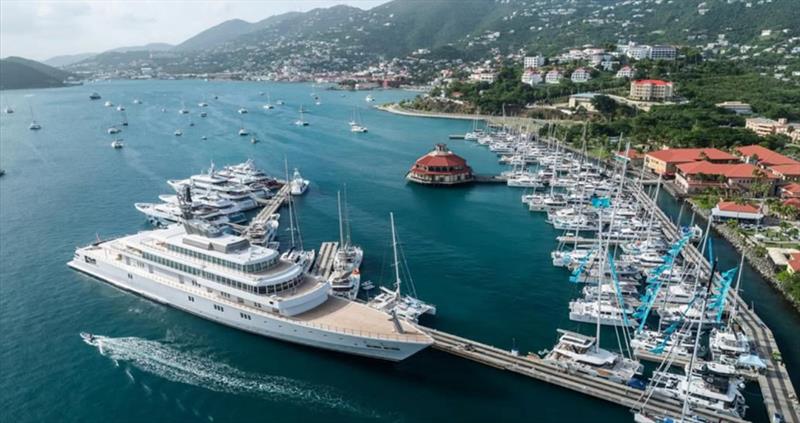
VIPCA seeks reciprocal licensing fees for BVI-based charter vessels
by VIPCA 12 Jun 06:19 PDT

At risk of losing - the $166 muillion annually the USVI charter yacht industry contributes to the territory's economy © VIPCA
In response to the short-sighted and unfortunate decision by the British Virgin Islands to move forward with an exorbitant fee increase on USVI-based vessels, VIPCA is calling on the USVI government to implement reciprocal licensing fees for BVI-based vessels and ensure BVI vessels visiting the territory are in full compliance with applicable laws.
Without immediate action from the USVI government, more businesses and jobs will be lost to the neighboring British Virgin Islands. The marine industry supports over 5,000 jobs and contributes more than $166 million to the local economy. For every vessel that relocates to the BVI or day charter business that might close, it is not only that direct business that is lost. The vast network of local businesses that support and benefit from the industry - including grocery stores, mechanics, florists, cleaning services, marinas, boatyards, electricians, HVAC technicians, restaurants, and bars, etc - will also suffer.
If left unaddressed, these policies will continue to drive business out of the USVI, resulting in job losses, reduced tax revenue, and long-term damage to the territory's reputation as a premier yachting destination.
If the USVI wants to protect these jobs and the future of its blue economy, it needs leadership that values the maritime sector and acts now.
VIPCA and its members are calling on the USVI government to impose and enforce reciprocal measures equal to those recently passed by the BVI.
- Impose reciprocal business license fees and entry limitations on BVI-based vessels as outlined in Schedule 1 of the Commercial Recreational Vessels Licensing (Amendment) Act, 2025.
- Ensure all foreign mariners are appropriately credentialed, including up-to-date STCW Basic Training for all crew and STCW A/II-3 certifications for vessel masters, as required by U.S. Coast Guard Regulations
- Ensure foreign vessels have up-to-date Yellow/Blue Code safety certificates and/or CVLA compliance, as required by law.
- Require foreign vessels to provide proof of having cleared U.S. customs before being allowed to embark or disembark passengers, as required by law.
- Require foreign vessels to provide proof of arrival and departure reporting through the eNOA/D system, as required by law.
The BVI's chosen policies undermine the spirit of cooperation that has allowed the charter industry to thrive in the Virgin Islands. A better path forward for both the U.S. Virgin Islands and the British Virgin Islands is working toward creating a single sailing zone - the Greater Virgin Islands working cooperatively to provide the best experience for all that visit these islands and that call them home. We stand ready to work toward that future; however, the BVI has unfortunately chosen another path—and we must respond.